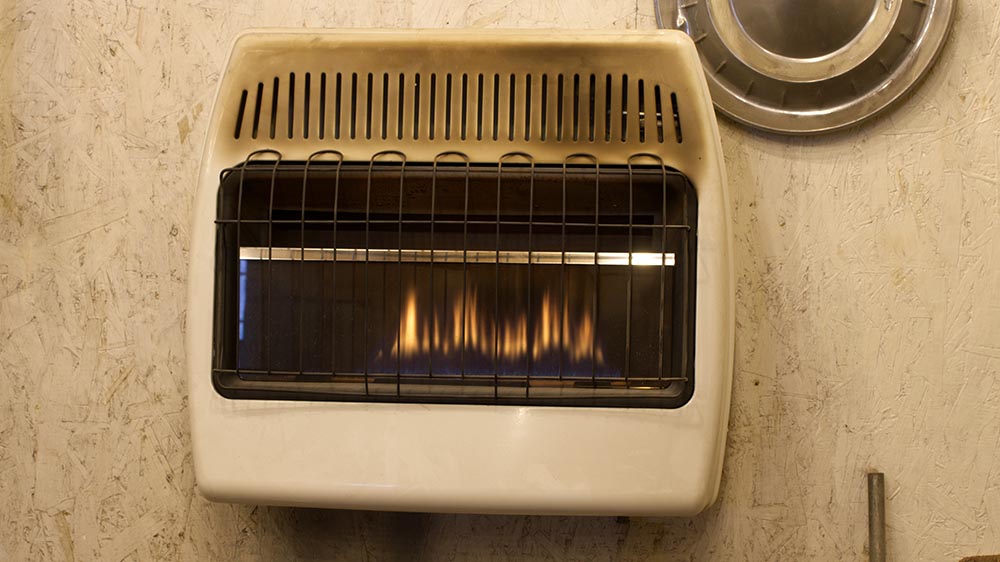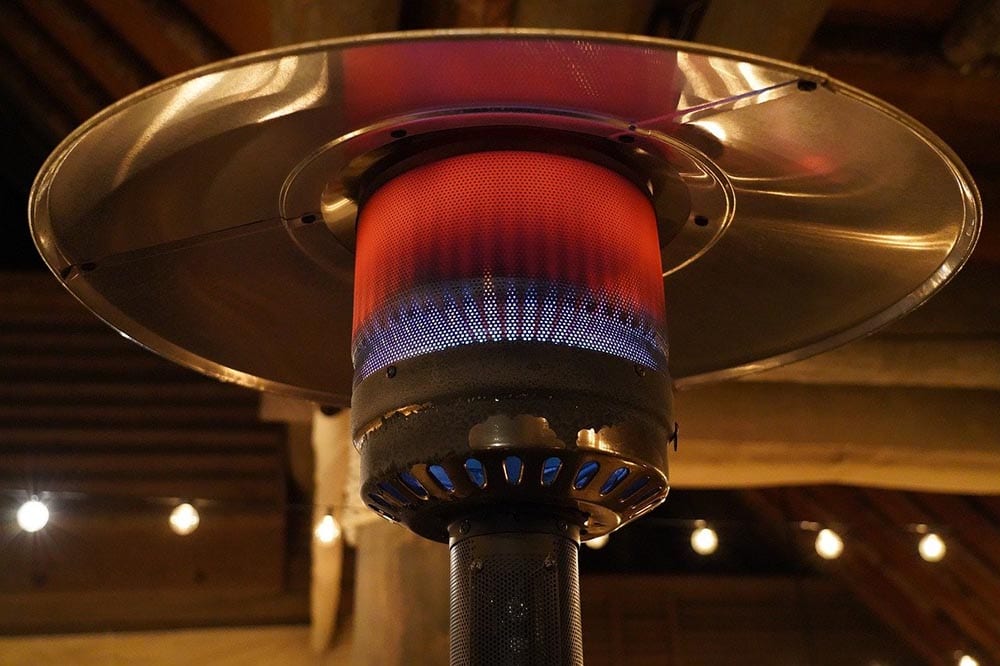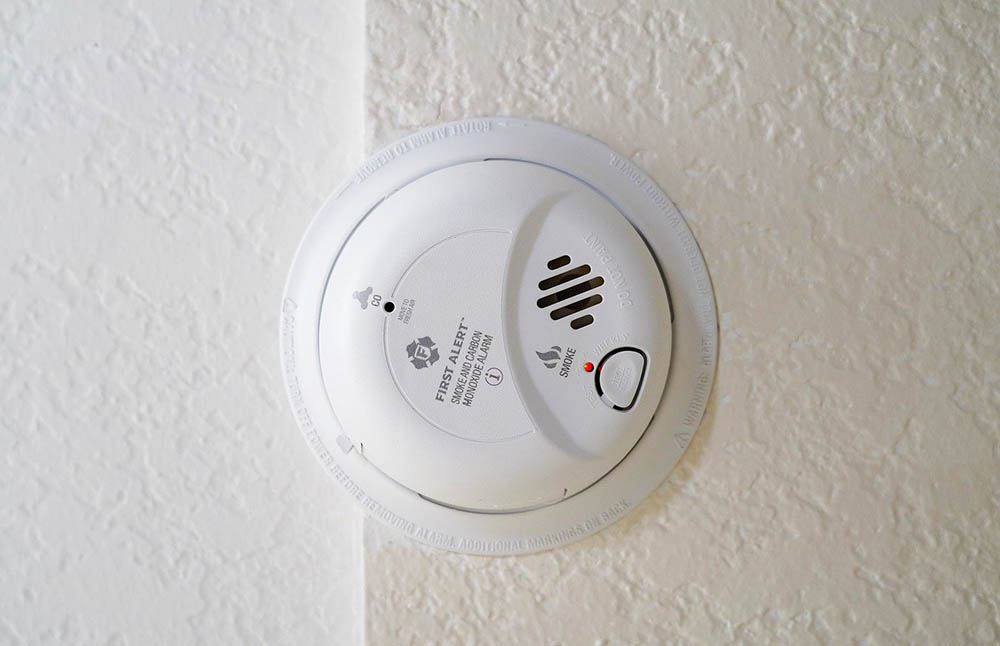Do Propane Heaters Produce Carbon Monoxide? Safety, Facts, & FAQ
-
Pete Ortiz
- Last updated:

The use of propane is on the rise around the globe. As more natural gas is mined, more propane is being produced. Propane is a cheap and versatile fuel source that is cleaner than oil and gas and can power everything from a hot water heater to a forklift to a backyard grill. As propane continues to work its way into higher use, it has been used more and more as a heating source, especially in cold and northern climates. Many outdoor eating spaces, patios, and even workshops are starting to install and use propane heaters.
Do propane heaters produce carbon monoxide? This is an important question to ask and know the answer to because carbon monoxide is extremely dangerous. In fact, carbon monoxide (CO) is the leading cause of accidental poisoning in the United States, and it can even lead to death in the wrong situation.
The good news is that a properly working propane heater should not produce carbon monoxide, and they come with very little risk of accidental discharge. However, it is important to know the risk factors and signs when using a propane heater, especially in an enclosed space.
Working Propane Heaters Should Not Produce Carbon Monoxide
Propane heaters that are in good working order should produce no carbon monoxide. Carbon monoxide should not be a huge worry for someone using a new or well-maintained propane heater, especially if the heater is primarily being used outside, where the risk of accidental carbon monoxide poisoning is extremely low.
Despite having a very low risk factor, propane heaters still have a chance to produce very low amounts of carbon monoxide even when they are in 100% working condition. The amount of carbon monoxide created by a functional propane heater should be negligible, but it is something that needs to be considered due to the potential danger.
A properly working propane heater should produce three byproducts: water vapor, carbon dioxide, and heat. Carbon dioxide is a safe byproduct as opposed to carbon monoxide, which is deadly.

Malfunctioning Propane Heaters Can Produce Carbon Monoxide
A malfunctioning or poorly maintained propane heater can produce harmful levels of carbon monoxide. This is especially the case in heaters that are producing incomplete combustion. Bad combustion is caused when the propane is not getting an adequate amount of oxygen. Less oxygen means a greater risk for carbon monoxide production. Incomplete combustion has the potential to produce harmful amounts of carbon monoxide that can even lead to death, so it is important to ensure that your propane heaters are well-maintained and serviced by professionals.
Issues that can cause incomplete combustion include clogged burners, loose valves, or improper service. If the air ratio drops below 24:1, then the combustion process will start to produce carbon monoxide. A person without proper knowledge or training could accidentally service their heater incorrectly and lead to a situation where the heater does not combust properly. That is why it is always suggested to get training or call a professional to service a propane heater properly to avoid any mistakes.
Always Have a Carbon Monoxide Detector
If you plan on using a propane heater in any capacity, you should have a carbon monoxide detector installed nearby. In fact, all homes should have at least one carbon monoxide detector, if not multiple. Carbon monoxide detectors will alert when the dangerous gas is detected in the air. It will give you time to leave the area to avoid suffering from carbon monoxide poisoning.
If your carbon monoxide detector goes off when you are using a propane heater, immediately turn the heater off and leave the area. After the carbon monoxide has dissipated, you need to get your heater serviced immediately before it is used again.
It is also a good idea to have your propane heaters inspected annually to ensure that the valves, burners, and lines are all in proper working order to avoid any potential for improper combustion and carbon monoxide production.

Signs of Carbon Monoxide Poisoning
There are numerous signs of carbon monoxide poisoning that you should be aware of. If you start experiencing any of these symptoms, leave the area immediately. If the symptoms persist, call 911. Carbon monoxide poisoning can happen extremely quickly, especially in small spaces.
Carbon monoxide poisoning is so dangerous because it can cause someone to fall unconscious, leaving them unable to leave the area, which can, in turn, lead to accidental death. The symptoms of carbon monoxide poisoning are:
- Headache
- Confusion
- Dizziness
- Sudden sleepiness
- Nausea
- Vomiting
- Unconsciousness
If not caught in time and treated properly, these symptoms can lead to brain damage and death.
If you use a propane heater, especially an indoor one like a propane-fueled fireplace, it is imperative to know the signs and symptoms of carbon monoxide poisoning.
Conclusion
Regular propane heaters should not produce noticeable amounts of carbon monoxide when they are working properly. Damaged or malfunctioning propane heaters have the potential to create dangerous amounts of carbon monoxide, which can be lethal. To avoid this, propane heaters should be properly maintained, only repaired by professionals, and inspected annually. Everyone should have a carbon monoxide detector in their home and know the signs and symptoms of carbon monoxide poisoning. While accidents involving propane heaters are rare, they can happen, so it is a good idea to have all of the facts so you can best protect yourself.
Featured Image Credit: Corvul, Shutterstock
Contents


